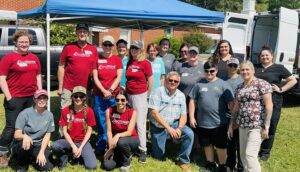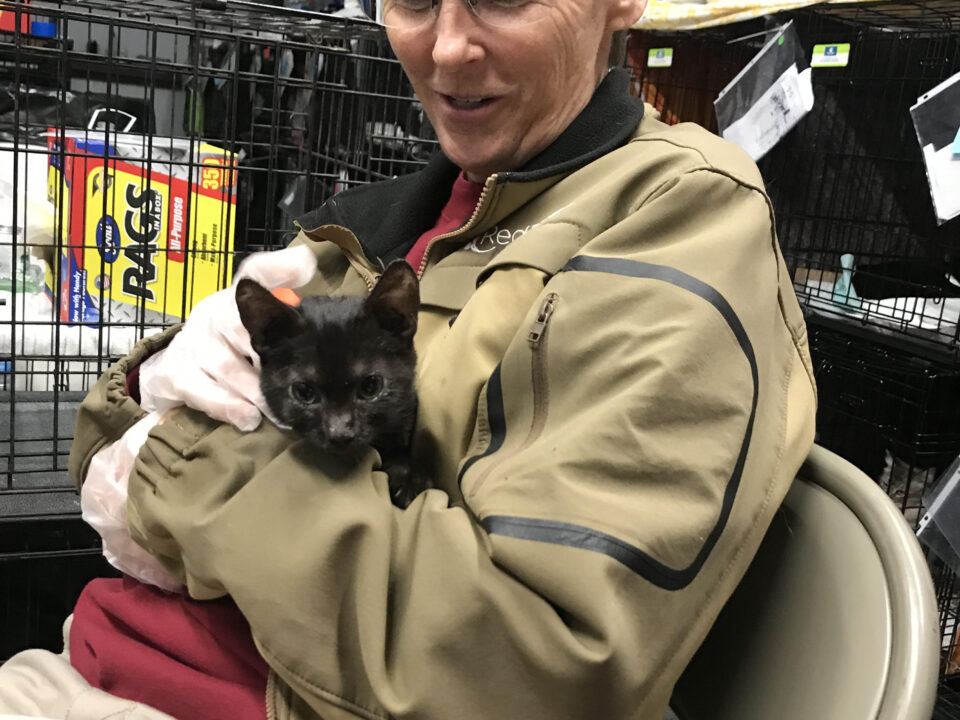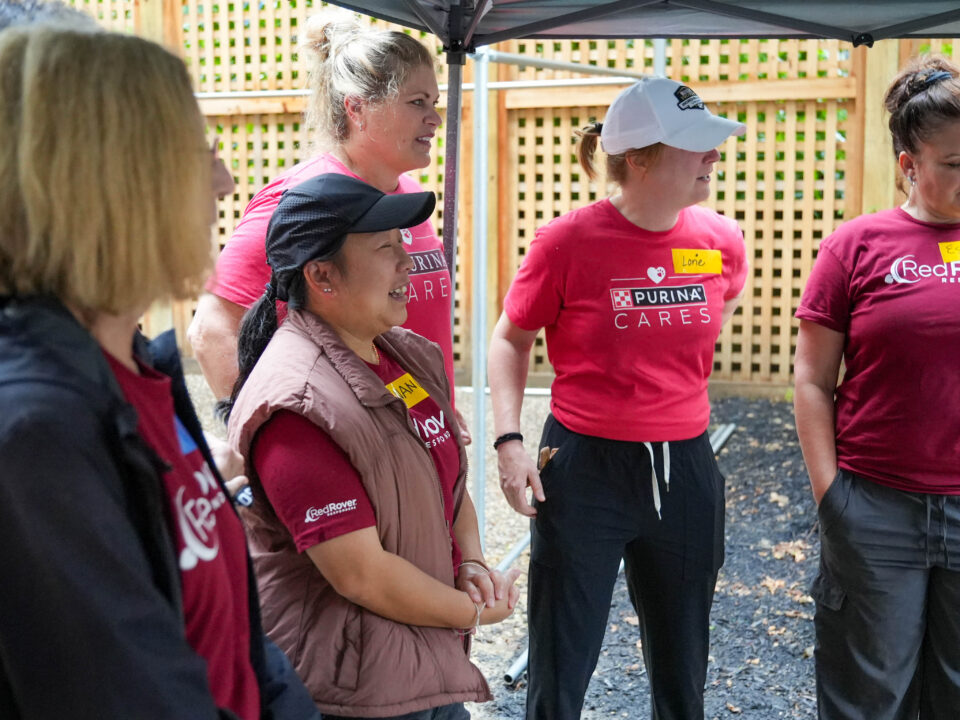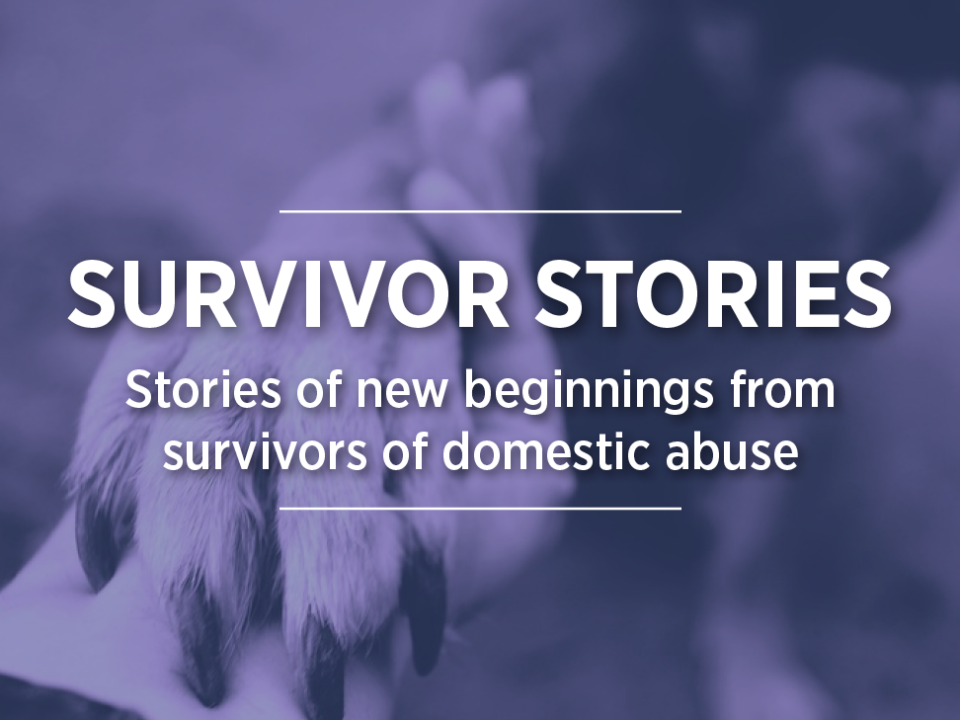Outreach, education, and relationship-building in Marlboro County
June 5th, 2023
By Devon Krusko, Field Services and Community Programs Manager
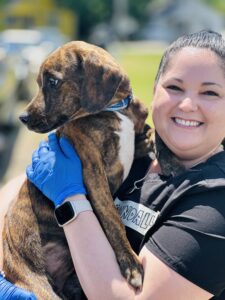 Back in 2020, I proposed what was, at the time, a bit of a radical idea to my team: let’s start a Community Programs branch of the Responders program. We’ll work to keep pets with their people, and we’ll start by supporting an organization that’s unchaining dogs that live outside and building them safe enclosures. Coming from shelter operations and animal control, I knew that I wanted the focus to be a community outreach approach. I envisioned RedRover highlighting the human-animal bond, meeting people where they’re at, and offering resources and education. There were lots of questions, of course! Would our followers and supporters stand behind this work? How would we fundraise for it? How would we, as staff, work through our own biases about dogs that live outside, and in poverty?
Back in 2020, I proposed what was, at the time, a bit of a radical idea to my team: let’s start a Community Programs branch of the Responders program. We’ll work to keep pets with their people, and we’ll start by supporting an organization that’s unchaining dogs that live outside and building them safe enclosures. Coming from shelter operations and animal control, I knew that I wanted the focus to be a community outreach approach. I envisioned RedRover highlighting the human-animal bond, meeting people where they’re at, and offering resources and education. There were lots of questions, of course! Would our followers and supporters stand behind this work? How would we fundraise for it? How would we, as staff, work through our own biases about dogs that live outside, and in poverty?
What started as a trial life-changing project for one dog in November of 2020 has grown to twice-yearly planned deployments that include not only unchaining, but free wellness clinics for pets and their people of Marlboro County, South Carolina. Marlboro County has the highest unemployment rate in the entire state, and the average salary for those working is just $18,000/year. The county has one of the lowest high school graduation rates in the state, and addiction rates related to stimulant use were up over 200% in 2019. The area is under-resourced for both people and pets, and is a desert for many services. The issues that affect humans, such as food, housing, and job security, directly affect their pets.
Since 2020, in partnership with the Humane Society of Marlboro County, we’ve unchained and improved the quality of life for over 40 dogs. These individual builds have prompted other community members to walk over from their homes and talk about their pets and seek resources from the shelter, promoted trust within the community, and created a long wait list of families who want to sign up for the program. It even sparked an interest so deep in one recipient that they began volunteering at the shelter and eventually were hired as an employee – now they help us build for other folks! It’s been an incredible chain of events of positive outreach, education, and relationship-building.
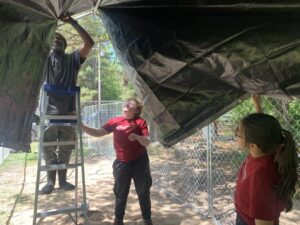
We’ll likely always receive feedback and questions about this program: why dogs live outside and why we support it. The reality is that there are many systemic influences surrounding pets and people in poverty, and 19 million people and their companion animals are living this reality every day. One’s income status is not related to their desire for pet companionship, nor does it dictate the amount of love they have for their animals. We all have different lived experiences, and there are many reasons why different communities have mostly outdoor dogs, whether families culturally grew up with dogs not allowed indoors, landlord restrictions, or keeping dogs for protection.
As with all of my visits to Bennettsville, South Carolina, the families I met on my recent trip in May were lovely, caring folks who showed immense gratitude for the program and an abundance of love for their pets. We laughed, hugged, worked side-by-side, and enjoyed plenty of kisses from the pups. But most of all, we connected with compassion, empathy, and kindness – and what’s not to love about supporting that!
